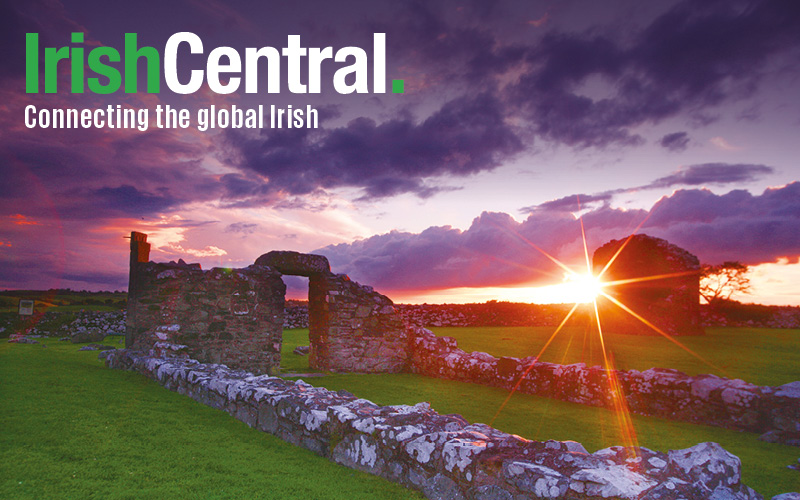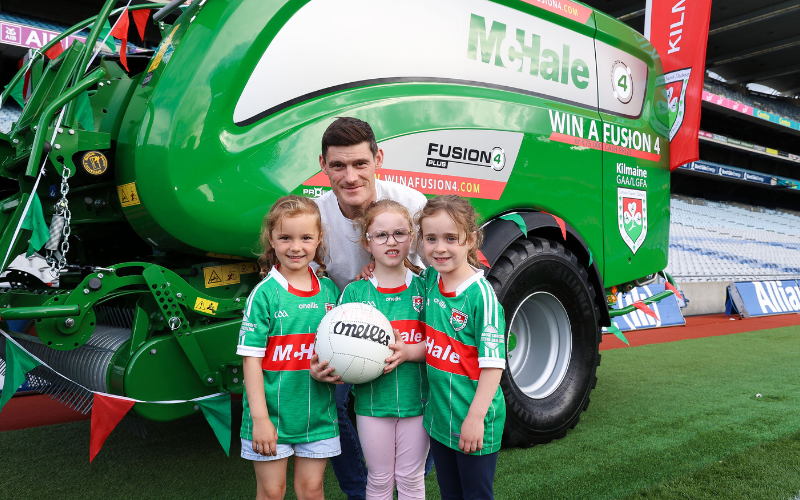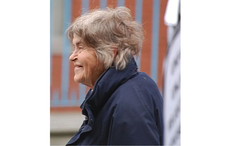When Father Andrew O’Connor helped a friend’s daughter prepare for marriage earlier this year, he never imagined it would lead to a photo shoot with Vogue.
“The Catholic Church requires marriage preparation. She and her fiancé lived in New York but were getting married in Switzerland, and the mother of the bride said her daughter needed help,” he says.
It was a fateful meeting. He runs a clothes company called Goods of Conscience. And the bride-to-be, Devon Schuster, just happened to be a marketing editor of the world’s most-famous style magazine.
“The fashion line came up in conversation. She was intrigued and came to the basement. The next day they had the meeting at Vogue.”
Soon, one of Andrew’s designs – a pair of shorts made of Guatemalan fibre – had appeared in Vogue’s June edition, worn by actress Cameron Diaz. The eminent celebrity photographer Mario Testino took the picture.
The shoot occurred while Diaz was on vacation in Palm Springs, California. The photo is in black-and-white and shows the actress sitting on a wall with the desert in the background, wearing a white shirt along with light chequered shorts.
Diaz is well-known for her concern about the environment and green issues. The caption reads, “Shorts made from wild Guatemalan cotton that is naturally resistant to pests.”
Vogue editor-in-chief Anna Wintour also mentioned Goods of Conscience in her editorial.
“My personal favorite is a neat pair of checked shorts that our market editor discovered under most unusual circumstances. When she went to see a priest to gain his blessing for her upcoming marriage, he mentioned that he had a small, charitably minded fashion company: Goods of Conscience. So much for perfect fits!”
This was not the priest’s first brush with fame. He has appeared several times on ABC News’ TV show Faith Matters Now, and in 2007 he organized a multimedia mass in the Upper West side, which documentary film-makers from Britain captured on film.
Andrew is a Diocesan priest in the Church of the Holy Family in the Bronx. He is also a clothes designer and visual artist, with connections in the art and fashion worlds of New York, Paris and London.
Goods of Conscience is a not-for-profit enterprise which he set up in 2005 after attending a retreat in Guatemala. He wanted to preserve the traditions of Mayan Indian weavers and give employment to Guatemalan locals. The clothes warehouse is in the basement of the convent in his Bronx parish.
“It all started as social justice,” Andrew said to IrishCentral. “In Guatemala the rate of malnutrition of children in certain districts is 80%. Food doesn’t get through because of corruption and drug cartels.”
In Guatemala, Andrew’s artistic eye saw the value of the local weaving, which is from hand-grown organic cotton or a hand-dyed organic indigo. “The cloth is inherently expensive because it’s handwoven. That’s why I went for high fashion,” he says.
The price of the clothes ranges from $275 for shorts like the ones Diaz wore, to $895 for a man’s jacket. The priest makes clothes for men and women, and has a line of vestments for priests in orange, wine and white. He also designs homeware and accessories.
Andrew ships the cloth from Central America to his own parish in the Bronx, where local seamstresses piece it into garments that he has designed. There are benefits for the Bronx workers, too. They learn high-level sewing, and the job gives them flexibility to spend time with their children.
Sometimes he brings in guest designers, but most of the creative input is Andrew’s own. “I’m good at it,” he points out.
Andrew is certainly an unusual priest. He grew up in the Midwest before his family moved to New Haven, Connecticut. The fifth of nine children, he joined the priesthood as a young man, after a trip to Ireland. “After high school I went to Europe and hitch-hiked around, and ended up in Ireland. My family’s from Sligo.”
He is, he says, “influenced by Irish things.” In 1986, when he had already started his religious training, he returned to Ireland to study literature with Irish literary luminaries like Seamus Deane and Eavan Boland. He stayed in Ballsbridge, a wealthy area in Dublin, and on weekends would go to a less-privileged part of the city where he would spend time with the travellers, a minority group who were experiencing discrimination.
In addition to designing high-fashion clothes, he continues to work as a visual artist, producing videos and sculpture. He is particularly interested in uses of light and illumination, and the Catholic teachings are a big part of his clothing designs.
"I have an aesthetic that I’m trying to convey,” he explains. “The fibre is a metaphor for the incarnation – mixing the divine and the human.”
Uniquely for the head of a clothes company, he’s against excessive consumption. The trademark name of his cloth is “Social Fabric,” and the clothes are practical. “It’s meant to be something you wear in multiple locations, you’re not wantonly consuming clothes,” he says.
He calls the line Mission Clothing and the descriptions of the garments on the Goods of Conscience website have an unconventional twist: “Formal or informal social fabric connects. Roll it up and throw it in a bag, this handwoven doesn't need the fuss of conventional fabrics. You are called to heal the social fabric. Let your apparel speak fluently in any language.”
Andrew’s religious beliefs illuminate his clothing designs in a literal sense. “There’s a secret thread there,” he says, and he’s not joking. “It shows up as a field of crosses. It has a halo effect.”
Goods of Conscience clothes will soon be on sale at 526 West 26th St., Room 520. In the meantime, Andrew invites those interested to visit the Church of the Holy Family parish on Castle Hill Ave. in the Bronx.




Comments